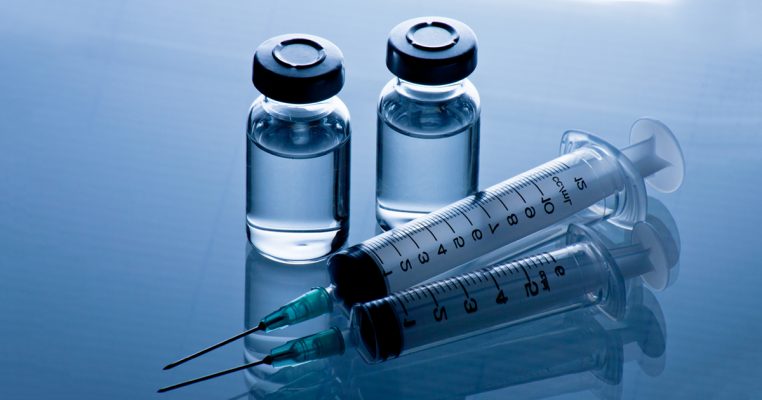Disease Outbreaks Threaten Vaccine Progress, Warns UN And Gavi
Immunisation efforts are increasingly threatened by factors such as misinformation, rapid population growth, humanitarian crises, and funding cuts, putting millions of people, including children and adolescents, at risk, according to the World Health Organisation (WHO), UNICEF, and Gavi, the Vaccine Alliance.
In a news release marking World Immunisation Week (April 24-30), the agencies warned of rising outbreaks of vaccine-preventable diseases like measles, meningitis, and yellow fever. Diseases such as diphtheria, which had been largely controlled in many countries, also face the risk of re-emergence.
The agencies are urging for urgent political attention and investment to strengthen immunisation programs and safeguard the progress made in reducing child mortality over the past five decades.
“Vaccines have saved more than 150 million lives over the past five decades,” said WHO Director-General, Dr Tedros Ghebreyesus. “Funding cuts to global health have put these hard-won gains in jeopardy. Outbreaks of vaccine-preventable diseases are increasing around the world, putting lives at risk and exposing countries to increased costs in treating diseases and responding to outbreaks. Countries with limited resources must invest in the highest-impact interventions – and that includes vaccines.”
The release highlighted that measles is making a particularly concerning comeback, with cases increasing year by year since 2021, reflecting the decline in immunisation coverage during and after the COVID-19 pandemic in many communities. In 2023, an estimated 10.3 million measles cases were reported, marking a 20% rise from 2022.
The agencies warned that this upward trend is likely to continue into 2024 and 2025, as outbreaks have intensified globally. Over the past 12 months, 138 countries reported measles cases, with 61 experiencing large or disruptive outbreaks, which is the highest number seen in any 12-month period since 2019.
“Meningitis cases in Africa also rose sharply in 2024, and the upward trend has continued into 2025. In the first three months of this year alone, more than 5,500 suspected cases and nearly 300 deaths were reported in 22 countries. This follows approximately 26,000 cases and almost 1,400 deaths across 24 countries last year.
“Yellow fever cases in the African region are also climbing, with 124 confirmed cases reported in 12 countries in 2024. This comes after dramatic declines in the disease over the past decade, thanks to global vaccine stockpiles and the use of yellow fever vaccine in routine immunisation programmes. In the WHO Region of the Americas, yellow fever outbreaks have been confirmed since the beginning of this year, with a total of 131 cases in four countries.
These outbreaks come amidst global funding cuts. A recent WHO rapid stocktake with 108 WHO country offices — mostly in low- and lower-middle-income countries — shows that nearly half of those countries are facing moderate to severe disruptions to vaccination campaigns, routine immunisation, and access to supplies due to reduced donor funding.
Disease surveillance, including for vaccine-preventable diseases, is also impacted in more than half of the countries surveyed,” it noted.
“It stated that the number of children missing routine vaccinations has been increasing in recent years, even as countries make efforts to catch up with those missed during the pandemic.
“The global funding crisis is severely limiting our ability to vaccinate over 15 million vulnerable children in fragile and conflict-affected countries against measles,” said UNICEF Executive Director, Catherine Russell.
“Immunisation services, disease surveillance, and outbreak response in nearly 50 countries are already being disrupted – with setbacks at a similar level to what we saw during COVID-19. We cannot afford to lose ground in the fight against preventable diseases.”
The release further noted that joint efforts by WHO, UNICEF, Gavi, and their partners have enabled countries to expand access to vaccines and enhance immunisation systems through primary health care, even amid growing challenges. Vaccines save nearly 4.2 million lives every year from 14 diseases, with almost half of these lives saved in the African Region.
UNICEF, WHO, and Gavi urgently called on parents, the public, and politicians to strengthen support for immunisation. The agencies stressed the importance of sustained investment in vaccines and immunisation programmes and urged countries to fulfill their commitments to the Immunisation Agenda 2030.
You may be interested

iPhone 17 Air Nearly As Thin As Its Buttons, New Images Reveal
gisthub - Apr 24, 2025Apple’s upcoming iPhone 17 Air is shaping up to be a strikingly sleek device, according to the latest dummy model images shared by…

28-Year-Old Electrician Dies from Electrocution in Oyo
gisthub - Apr 24, 2025A 28-year-old electrician, whose identity has not been disclosed, was electrocuted in Oyo State on Wednesday. The incident took place in Eruwa, in…

23-Year-Old Man Remanded for Allegedly Defiling Minor in Badagry
gisthub - Apr 24, 2025A Badagry Chief Magistrates’ Court in Lagos has remanded 23-year-old Emmanuel Egbunu in a correctional centre for allegedly defiling an 11-year-old girl. Chief…















Leave a Comment